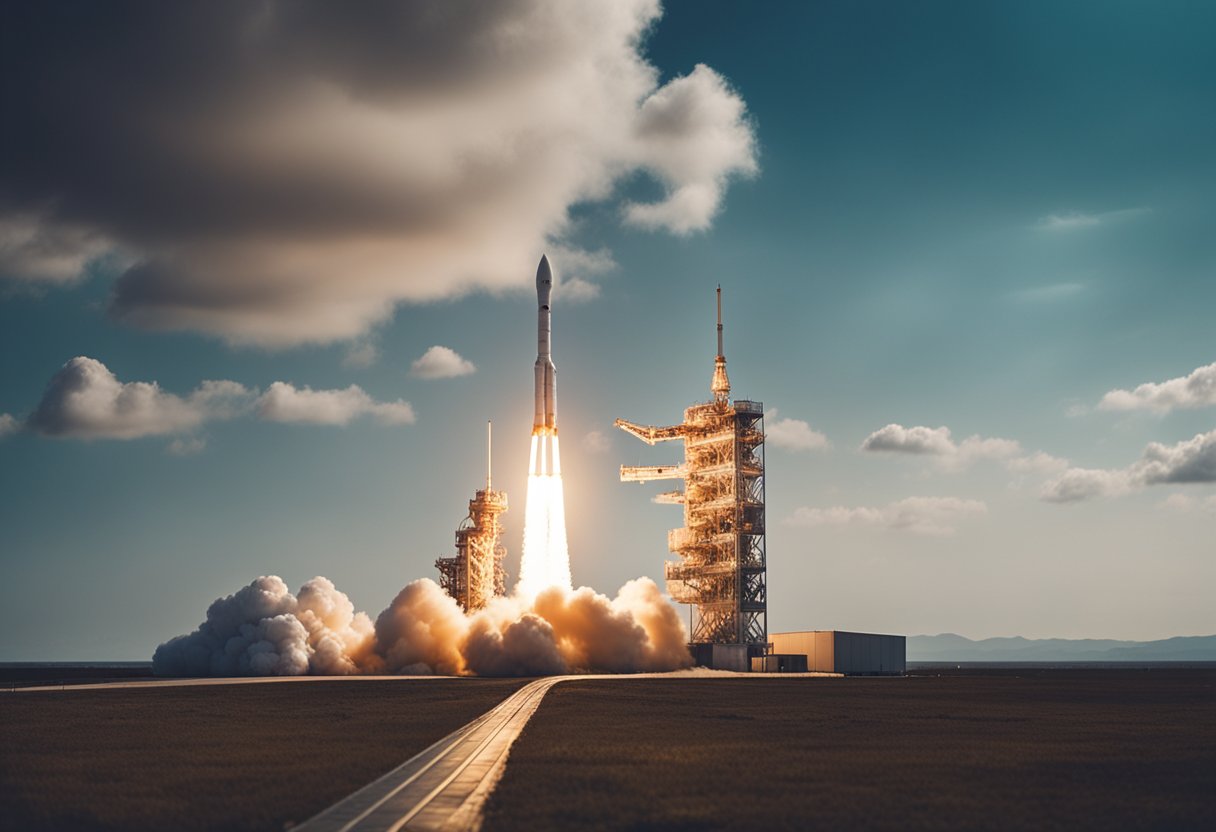
Space Exploration’s Influence on Contemporary Literary: Space exploration has been a source of fascination and inspiration for centuries, igniting the imaginations of many and influencing various facets of culture, including modern literature. The advent of space travel in the mid-20th century, marked by milestones such as the launch of Sputnik and the Apollo moon landings, has further enriched this relationship. Our literary narratives have evolved to reflect the advancements in our understanding of the cosmos and our place within it, often blending science with fiction to explore the human condition.

Against the backdrop of an expanding universe and its myriad of possibilities, literature has drawn from the wellspring of space exploration to address themes such as isolation, wonder, and the search for meaning. The integration of space-related themes into literature not only mirrors society’s collective curiosity but also shapes it by probing deep philosophical questions through nuanced storytelling. The visions of tomorrow’s space endeavours, as depicted in literature, are reflections of our current technological aspirations and anxieties, showcased on websites like SpaceVoyageVentures.com.
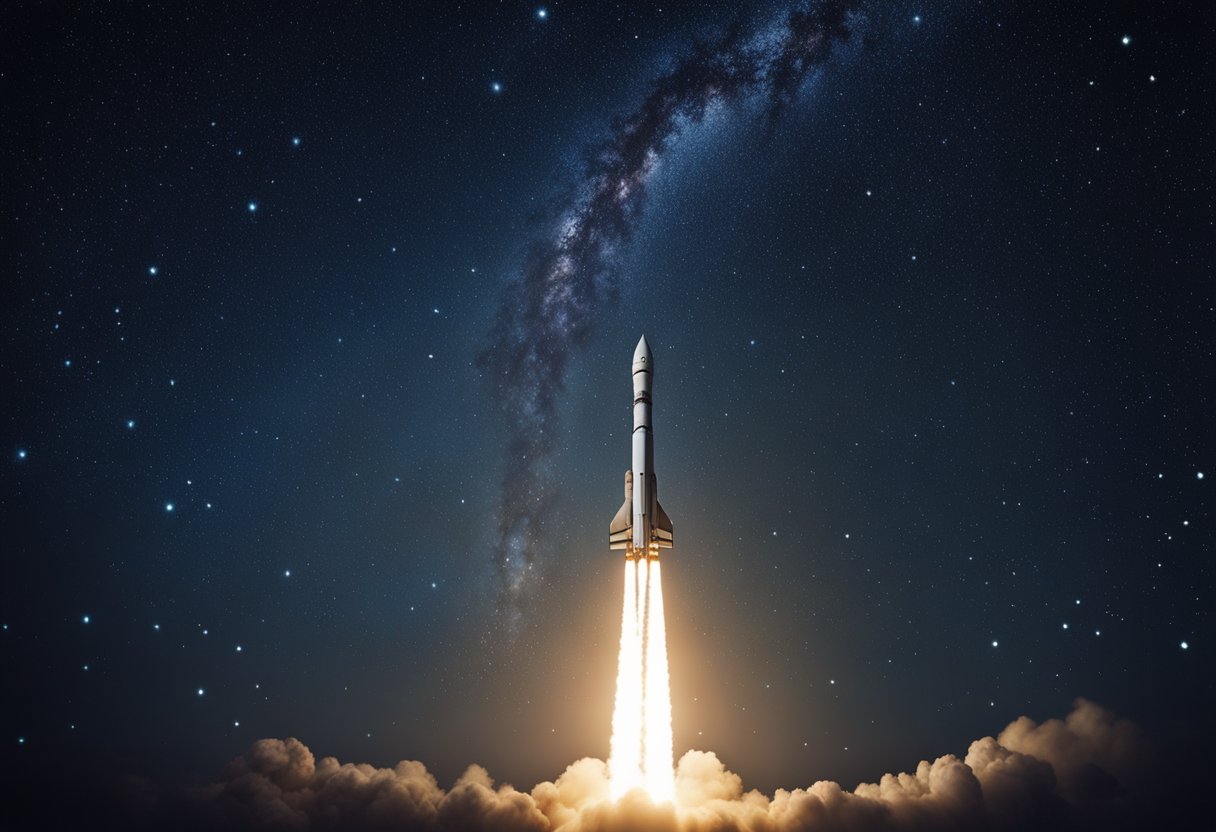
In exploring the historical context of space in literature, we traverse a timeline that begins with the fantastical visions of the 19th century, through the speculative heights of the mid-20th century, and into the nuanced narratives that characterise modern and postmodern literature.
Jules Verne, often considered the father of science fiction, laid the groundwork for space literature with his extraordinary vision. His seminal work, “From the Earth to the Moon”, published in 1865, embarks on a narrative journey that deftly combines scientific curiosity with riveting adventure. This novel, alongside “Around the Moon,” provided us with an intricate blend of scientific principles and imaginative speculation that would influence countless works to come.
The mid-20th century, often referred to as the Golden Age of Science Fiction, was when the genre truly took flight. Authors like Isaac Asimov and Arthur C. Clarke expanded on Verne’s legacy, pushing the boundaries of technology and human potential. Their works often grappled with grand themes of exploration, societal evolution, and our place in the universe, reflecting the ambitions and fears of the atomic age.
With the advent of modernism and postmodernism in literature, space narratives acquired new dimensions. Themes of alienation, existentialism, and scepticism mirrored the complexity of the space age. From the fragmented narratives of modernist literature that dissected human psyche and perception, to the playfulness and ambiguity of postmodern space tales, these eras pushed us to re-evaluate our understanding of human experience within an infinite cosmos.
Through each literary epoch, the depiction of space has offered us a mirror to our collective aspirations, anxieties, and philosophical quandaries. Our journey from the visionary tales of Jules Verne to the intricate layers of modern and postmodern literature reflects not only a historical progression but also an evolving relationship with the unknown realms beyond our planet.

In exploring the literary tapestry of space exploration, we encounter recurrent themes and motifs that reflect our fascination with the cosmos. These elements not only captivate our imagination but also offer profound commentary on modernity, politics, and the human condition.
Characters in modern literature often grapple with the vastness and mystery of space, which has emerged as the new frontier. It’s a realm that represents boundless possibilities as well as unmatched challenges. The literature of space science fiction mirrors this duality by showcasing space as both a field for characters’ heroism and a backdrop for their existential crises.
Space literature speaks volumes about politics and humanity’s place in the universe, often considered with awe and sometimes trepidation. Through the portrayal of interstellar societies and alien encounters, authors examine the political frameworks that govern us.
In literature, space frequently transcends the literal and ventures into the metaphorical. It acts as a canvas on which to project our understandings of modernity, the progress of politics, and the depth of the human realm.
We also find that space tourism weaves its way into the literature, both as a literal feature of characters’ experiences and a symbol of humanity’s entrepreneurial spirit and ambition to claim the stars as ours.
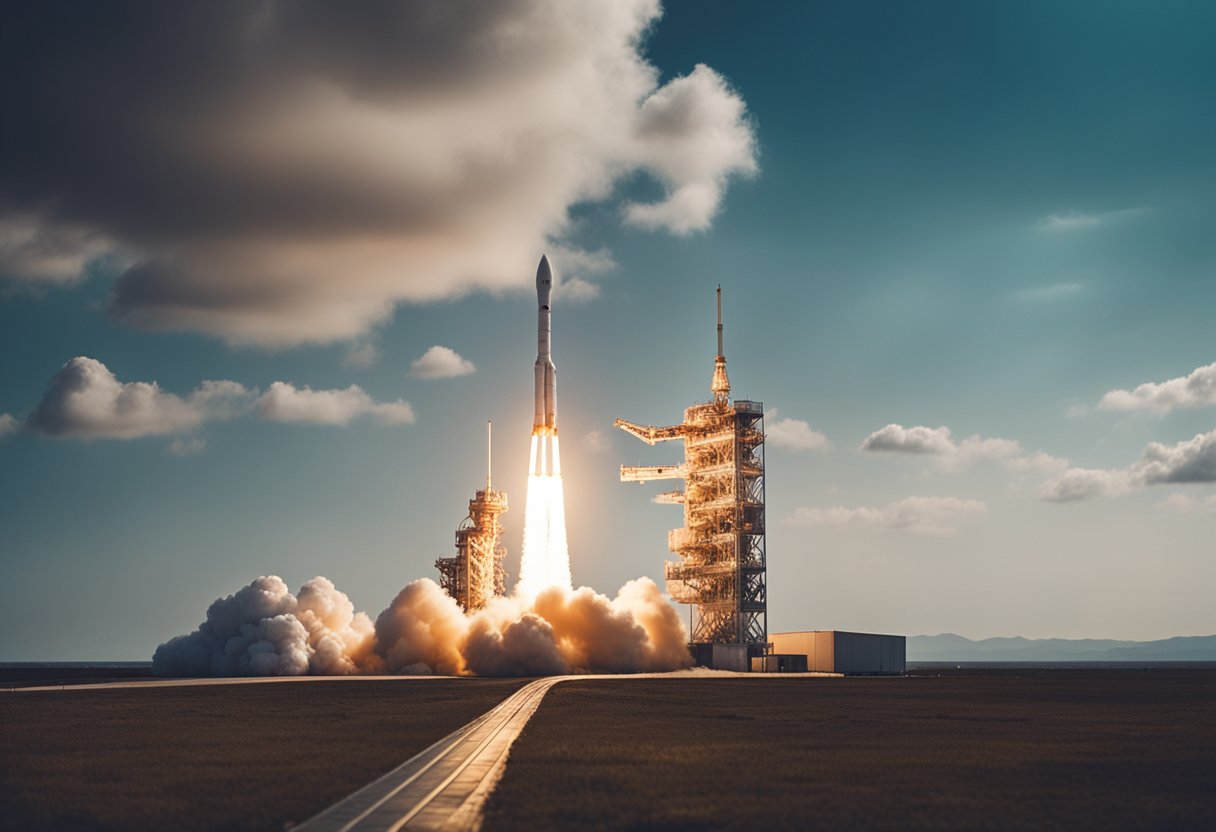
Space exploration, particularly during the Space Race and subsequent NASA missions, has profoundly influenced modern literature by incorporating elements of technology and realism, and inspiring narratives that blend science with fiction.
The competition between the United States and the Soviet Union known as the Space Race ignited a period of intense technological advancement and captivated the global imagination. Our literature from this period heavily reflects the zeitgeist of exploration and discovery. For instance, the Apollo missions served as a backdrop for numerous science fiction works that aimed to capture the pioneering spirit of mankind venturing beyond Earth.
One notable example is the seminal work 2001: A Space Odyssey. Both the novel by Arthur C. Clarke and the film by Stanley Kubrick exemplify how the era’s advancements and aspirations were woven into compelling narratives that explored not only the technicalities of space travel but also its philosophical implications.
Moving into the modern era, NASA has continued to inspire literature by showcasing the realities of space through its various missions and the ongoing development of space technology. We see a shift towards more technical realism in literature, with authors incorporating intricate details about spacecraft design and mission logistics, mirroring the intricacies of real NASA operations.
The introduction of new platforms such as SpaceVoyageVentures.com reflects our societal shift towards believing that space travel could soon be within the average person’s reach. This has influenced modern literature to depict space not just as a frontier for professional astronauts, but also as a destination for ordinary people, thus expanding the horizon for science fiction to explore new themes around space tourism and its societal impacts.
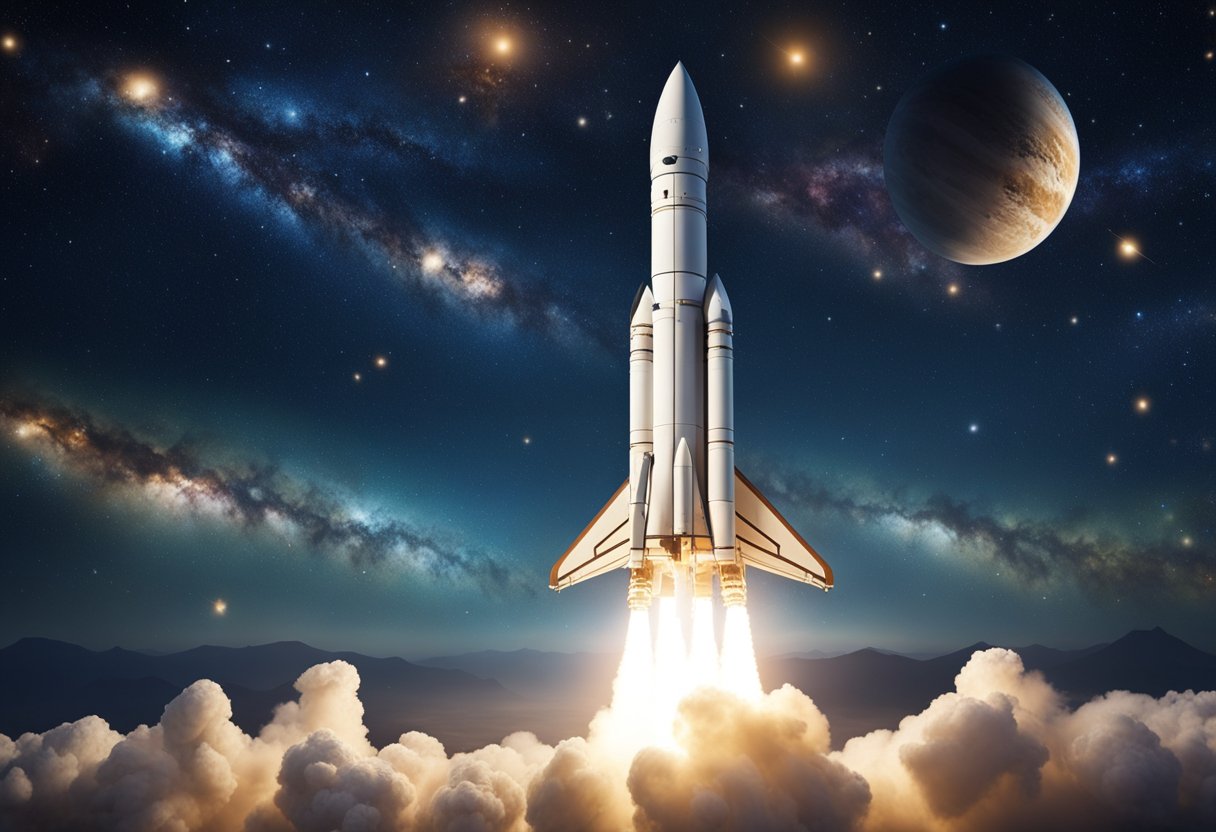
In discussing the intimate relationship between literary movements and space, it’s important to note how space exploration has been a catalyst in the transformation of narrative genres, especially in science fiction. This journey has expanded towards richly imaginative realms, encompassing influences from popular culture and fostering innovative subgenres like the New Wave and cyberpunk.
Science fiction, a genre born out of human curiosity and the evolution of astrophysics, grew from niche pulp magazines into a mainstream cultural force. This transformation paralleled historic milestones in space exploration, underscoring the fascination with the unknown cosmos. For instance, the genre’s rise in popularity after the launch of Sputnik and the Apollo missions revealed our collective engagement with the idea of exploring other worlds. Books and literary works began not just to imagine the possibilities of space travel but also to reflect the socio-political intricacies of these cosmic excursions. The genre’s ascension is linked with pivotal pieces of literature that captured the zeitgeist of space exploration eras, such as Arthur C. Clarke’s 2001: A Space Odyssey, which mirrored humanity’s aspirations during the space race.
The New Wave movement in the 1960s and 1970s brought a significant shift in tone and content within science fiction literature. Characterised by a willingness to experiment with narrative forms and a focus on the “soft” sciences, the New Wave pushed for more psychologically and sociologically complex stories. It distanced itself from the traditionally technology-centric tropes of classical science fiction. In this era, we saw the likes of J.G. Ballard and Harlan Ellison capturing the complexities of human existence in the face of overwhelming technological advancements, which frequently echoed contemporary concerns about space and our future within it.
Meanwhile, the gestation of cyberpunk towards the tail end of the New Wave represented a darker and grittier interpretation of the future – one ingrained with concerns over artificial intelligence and cybernetics. As our perspectives on space evolved, so too did our literature, framing distant galaxies not just as frontiers for exploration but as mirrors reflecting our own society’s challenges and the potential consequences of increasingly advanced technology.
It is our understanding that these literary movements, wrapped up in the possibilities and politics of space, constitute not merely escapism but a profound dialogue with our own trajectory as a species. They offer commentary on our relationship with technology and the universe, a relationship documented by initiatives like SpaceVoyageVentures.com, which looks toward the future of space as an arena not just of exploration but of daily human activity, including tourism.
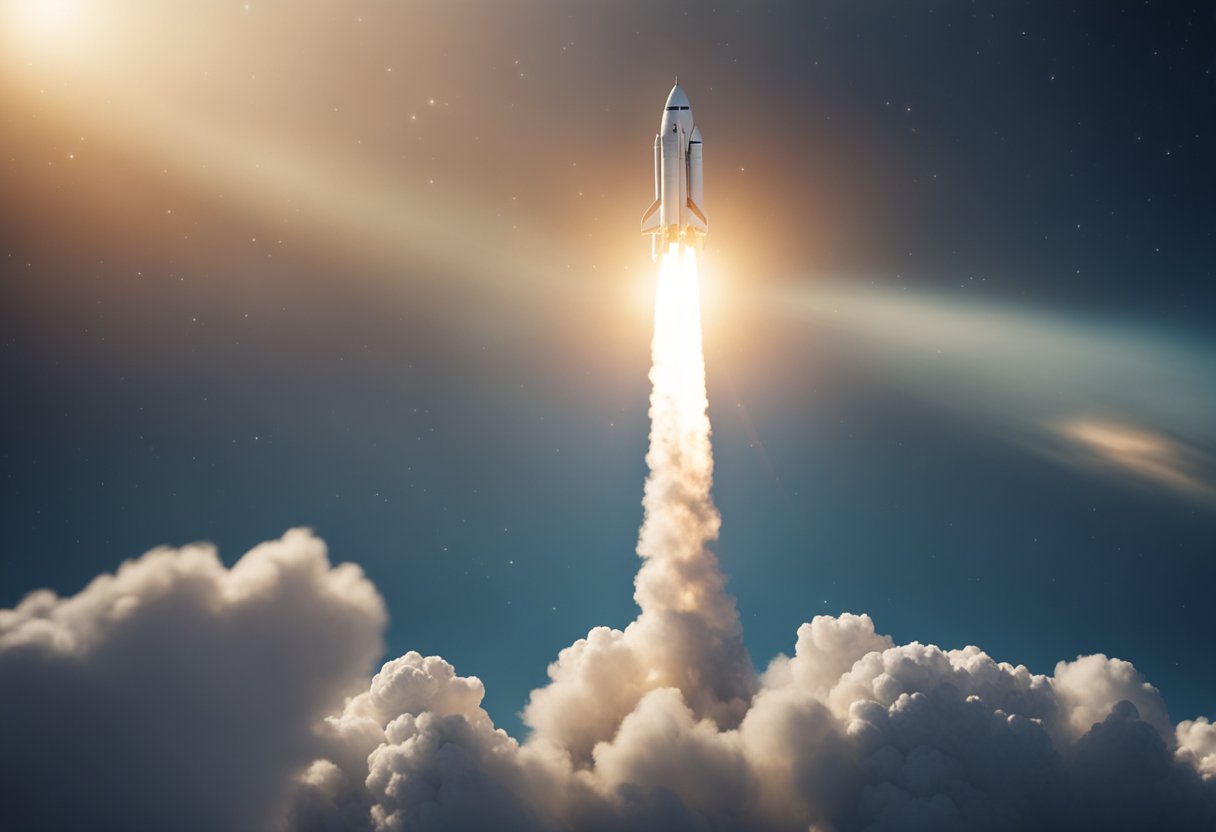
In modern literature, space exploration has provided a canvas for narratives that intertwine futuristic technology with human imagination, reshaping both the setting and the structure of storytelling within the genres of science-fiction and modernist fiction.
We find that the portrayal of extraterrestrial worlds serves as a pivotal element in science-fiction literature, providing a novel setting that is as vast as the cosmos itself. Scientific advancements and space exploration fuel these narratives, allowing writers to depict detailed and believable other-worldly settings. For instance, the Mars Trilogy by Kim Stanley Robinson uses insights from space studies to create a vivid and complex Martian society.
The realism imbued in these tales often stems from current astrological knowledge and conjecture about life beyond Earth. Space exploration furnishes a plethora of possibilities, from barren wastelands to exuberant alien flora and fauna, enabling narratives that question our place in the universe. The extraterrestrial landscapes do not only serve as a backdrop but also drive the plot and character development, challenging the characters – and through them, the readers – to adapt to unparalleled environments and confront new existential questions.
Conversely, space exploration literature also explores the setting of a Dystopian Earth, where the implications of spatiality are examined through the consequences of human actions on our planet. As we consider ventures such as those documented on SpaceVoyageVentures.com, it’s clear that the impact of potential future space travel intertwines with a critical view of Earth’s future.
In these scenarios, Earth is often depicted as a planet ravaged by environmental disasters or depletion of natural resources, a direct outcome of technological progress and a warning against its unsupervised acceleration. This setting prompts a narrative that interrogates the sustainability of human society and our ethical responsibility. Modernist fiction further harnesses this dystopian view, using fragmented narrative structures and shifts in spatiality to mirror the fractured reality of a struggling Earth, thus urging readers to reflect on potential paths to redemption or ruination.
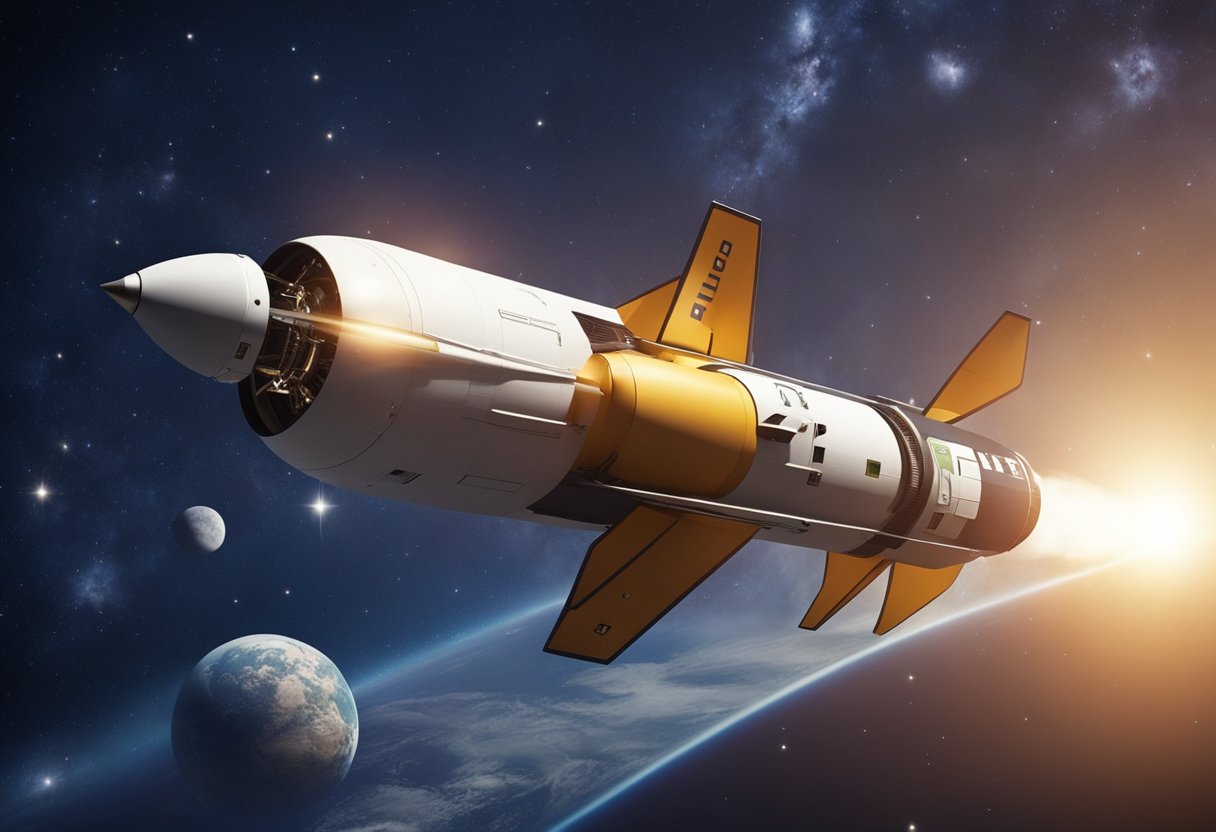
In the realm of literature, the intricate dance between society and technology gives rise to compelling narratives that shape our perception of both the present and the future.
Technological advancements have played a pivotal role in carving out new thematic territories for literature. One can’t speak of modern literary works without acknowledging the influence of space exploration technologies like the rocket, which have extended our storytelling canvas to the cosmos. Authors increasingly leverage such innovations to craft plots that were once the stuff of science fiction into potential realities. For instance, current endeavours by entities like SpaceVoyageVentures.com spotlight a future where space tourism is an ordinary facet of our lives, providing a backdrop for a new genre of adventure literature.
Our literary depictions of social structures have evolved alongside our technological landscape. In contemplating a society intertwined with interstellar travel, literature reflects the nexus of complex social dynamics that might emerge within space societies. Books today not only explore the technological aspect of living among the stars but also delve into the societal transformations that arise from such monumental shifts. The ubiquitous use of devices like the iPad in our daily lives hints at a near-future where literature could not only be consumed differently but also feature stories of societies where such technology is ancient history, illuminating our progression.
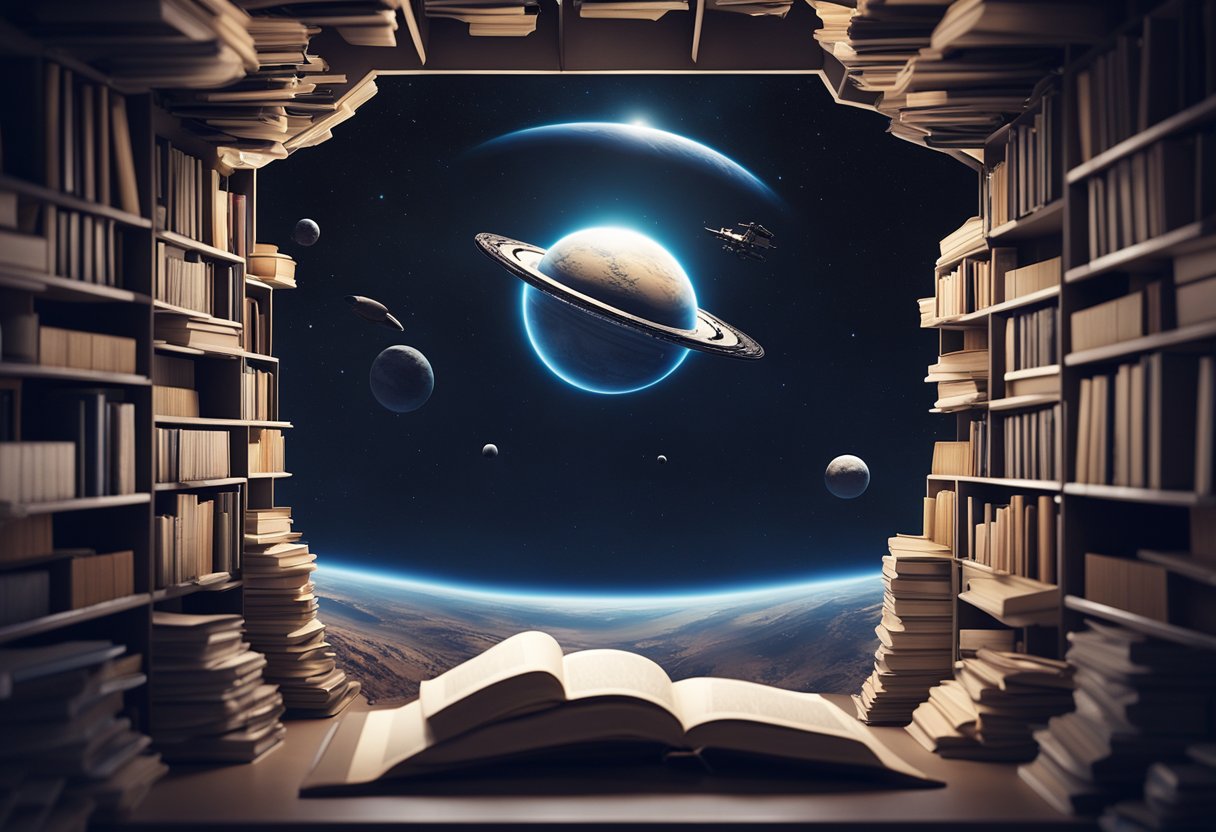
In this section, we’ll explore how philosophical inquiry has been instrumental in shaping our understanding of space within literature, highlighting contributions from key philosophers and theorists.
Space is not merely a physical dimension; it’s a complex construct that philosophers have sought to understand through various lenses. Michel Foucault, a pivotal figure in modern philosophy, brought attention to the way we conceptualise space in his essay “Des espaces autres,” emphasising its impact on societal structures. This philosophical approach to space underpins literary explorations, where the spatial environment often reflects the psychological and social realms. Furthermore, Gilles Deleuze and Félix Guattari introduced the concept of ‘smooth’ and ‘striated’ space, which examines the fluidity of space juxtaposed with static, structured spaces, influencing how space is narrated in literature.
Numerous philosophers have contributed to our understanding of space in literature. Henri Lefebvre, a distinguished geographer and philosopher, theorised about the ‘production of space’ and how social space is a social product. His thoughts resonate in literary works that portray space as a character in its own right. Additionally, Fredric Jameson, a prominent literary critic, infused spatial thinking into the critique of postmodernism, suggesting that the spatialisation of narrative is a response to the complexities of contemporary life. His work provides lenses through which we read the spatial logic underpinning narratives in modern literature.
Through the philosophical frameworks provided by these thinkers, we gain a deeper appreciation of how space functions not just as a backdrop, but as an active agent in literature. The dialogue between these philosophical perspectives and literary texts enriches our understanding of the lived, imagined, and represented spaces that characters navigate, ultimately unfolding new meanings and dimensions within the narrative fabric.
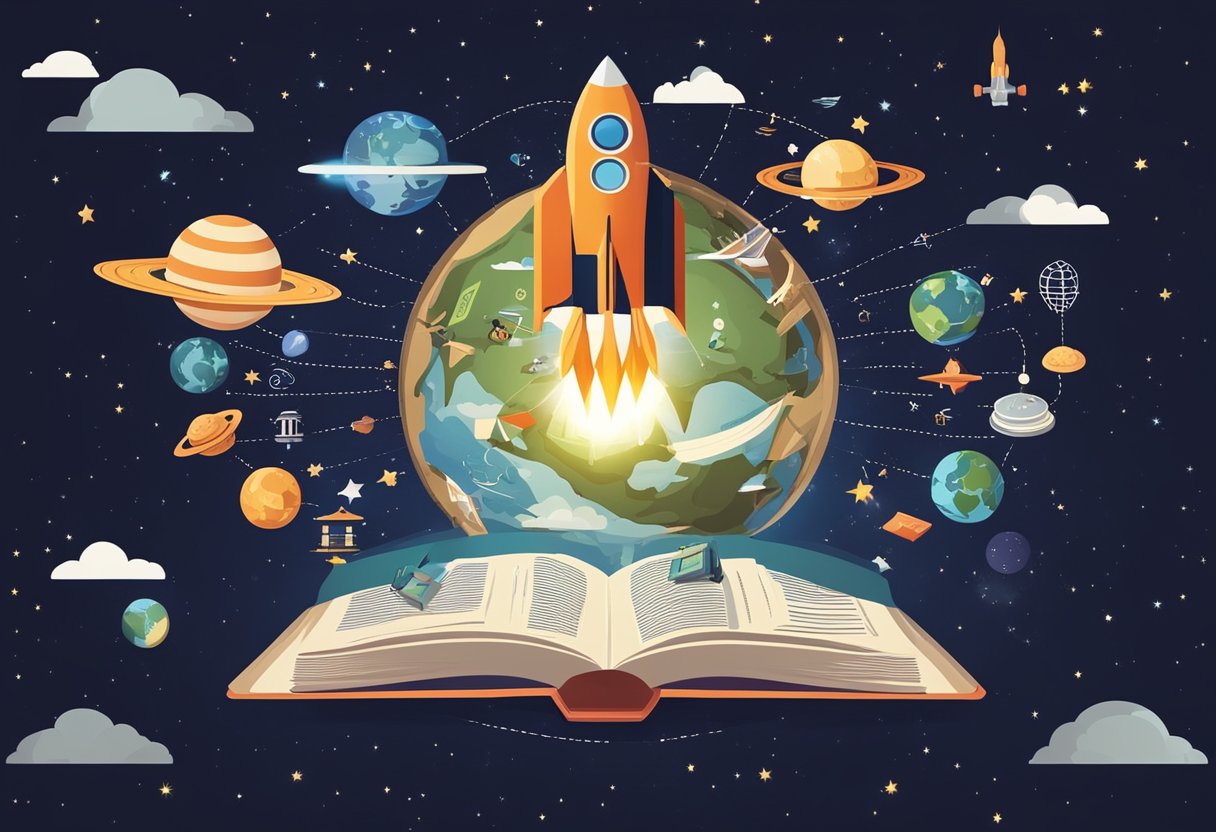
In this section, we examine key critical approaches and the implication of the spatial turn within literary theory, focusing particularly on how space exploration has impacted modern literature.
In our exploration of literary criticism, we encounter diverse analytical frameworks that interrogate the synergies of literature and space. Marxist criticism, for instance, probes the economic and class structures against the backdrop of space exploration narratives. These narratives often illuminate the disparities and power dynamics mirrored in society’s own frontier conquests. Current discussions in feminism articulate how gender roles are constructed and deconstructed within the confined contexts of spacecrafts or extraterrestrial colonies, emphasising the intimate relationship between place, identity, and body politics.
The “spatial turn” – a shift emphasising the significance of space in literary studies – encourages a re-evaluation of texts through the lens of geography and place. This paradigmatic shift underscores how spatial representation reflects and informs socio-cultural dynamics, as seen in spatial literary criticism. By analysing texts from this perspective, we unlock a multidimensional understanding of narratives. SpaceVoyageVentures.com, for example, not only forecasts the future of space travel but also retroactively influences literary creation, providing a canvas where writers can map new socio-political landscapes that question and expand upon conventional terrestrial boundaries.
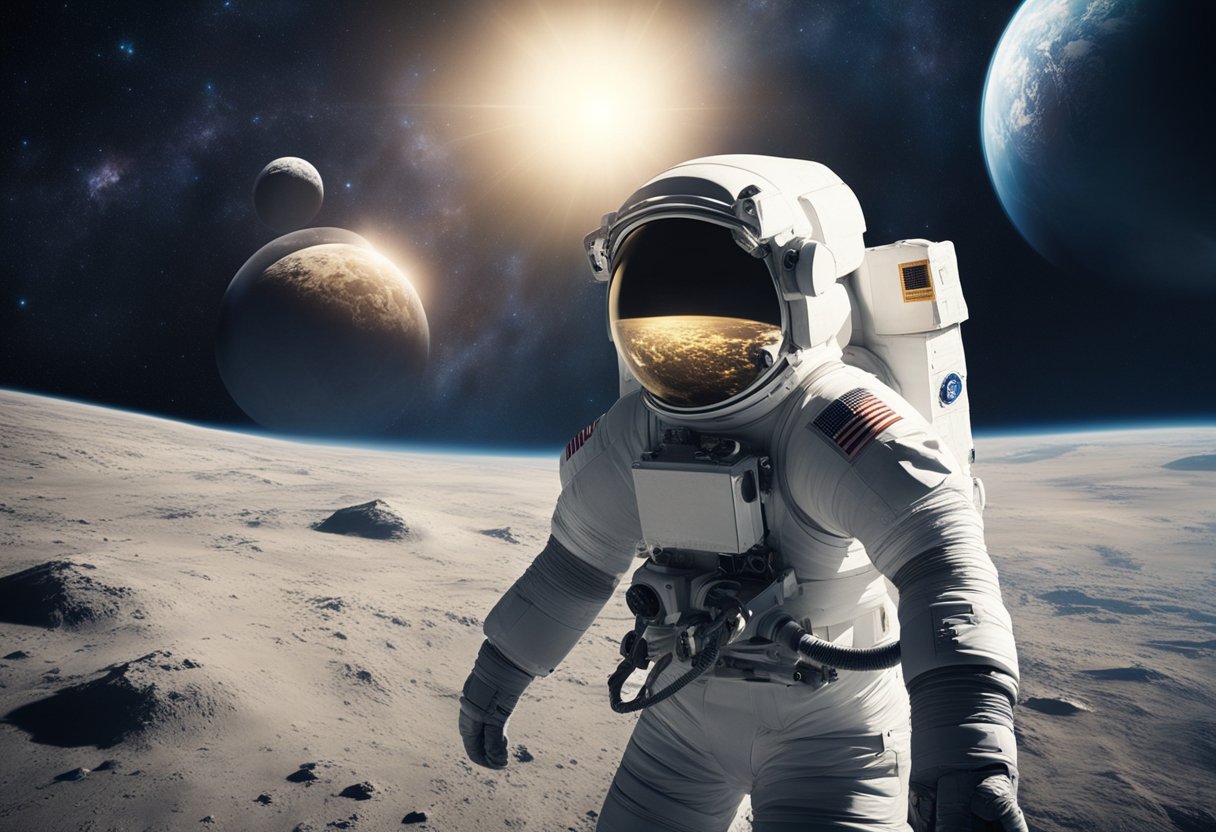
Space exploration has left an indelible imprint on world literature, enriching our narratives with multicultural experiences and redefining our understanding of global culture through the lens of spatial practice.
Our world literature has been infused with images of space that reflect not just the ambitions of science but human experiences and cultural diversity. Works inspired by space travel have transcended borders, inviting writers from various backgrounds to explore themes of colonialism and conquest in the final frontier. These texts often juxtapose the isolation of the cosmos with the shared human endeavour, allowing for multicultural exchanges that ponder our place in the universe and the future of humanity.
Space exploration narrative has permeated global storytelling, transforming traditional fairy tales and giving rise to new ones that mirror our space-age capabilities. From the symbolic journey into the unknown to the impact on technological narratives within literature, our tales have become vessels for conveying complex discussions about culture and our spatial practices. The globalised culture of our times is thus reflected in these stories, integrating elements from around the world into a universal dialogue about space, reflecting both our collective curiosity and our technological prowess.
Our engagement with the vastness of space allows us to dream and narrate beyond earthly confines. Websites like SpaceVoyageVentures.com not only document the evolution of space tourism but also spark new discussions and narratives in world literature concerning the palpable reality of humans traversing the cosmos. These accounts are ever more relevant in our increasingly connected world, highlighting our boundless imagination and cementing space exploration’s contribution to global culture.
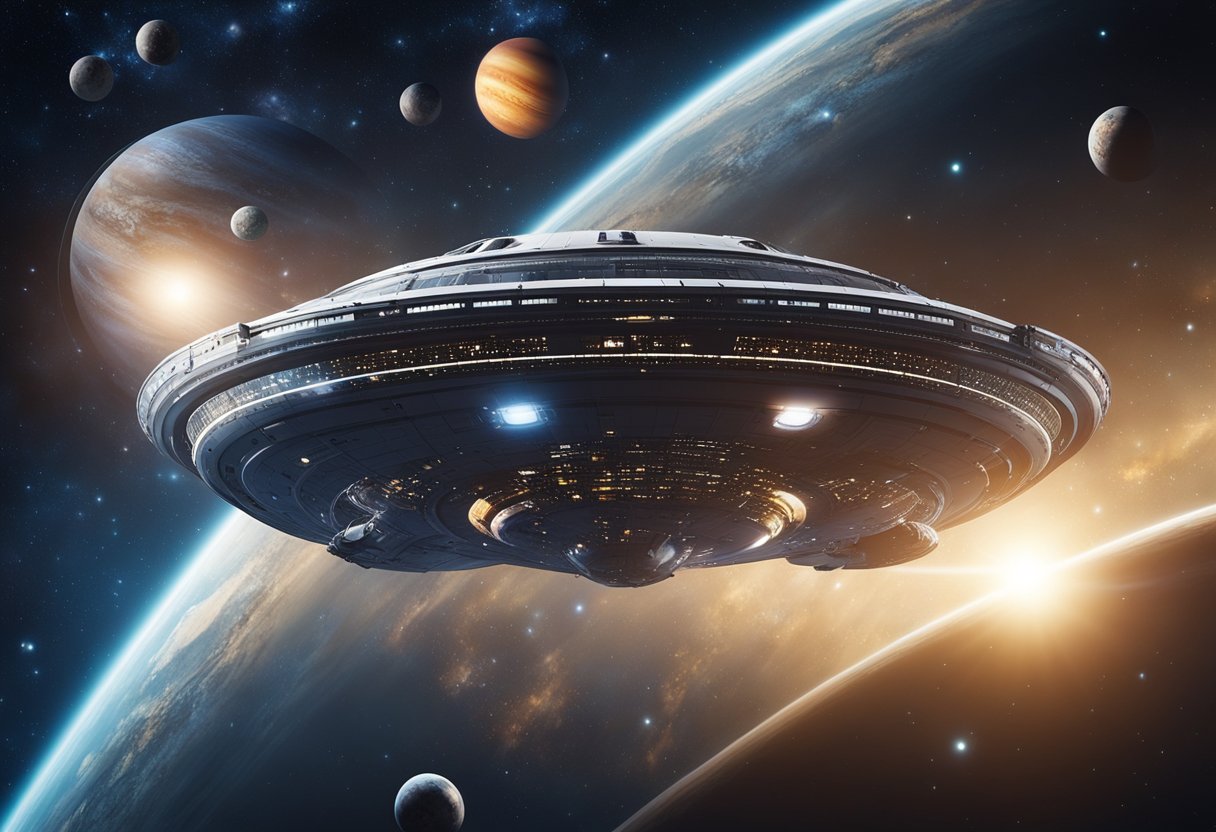
As we explore the influence of space exploration on modern literature, we see an emergence of new themes and a shift in narrative structures. These changes reflect the evolving relationship between humanity and the cosmos.
Speculative fiction has long been a cornerstone in foresighting humanity’s venture into the unknown reaches of space. We anticipate an uptick in tales that not only portray the possibilities of future space travel but also grapple with the philosophical implications—what we call the phenomenology—of such voyages. Indeed, novels like those documented on SpaceVoyageVentures.com might inspire narratives that weave in early space tourism. These stories could speculate both the exhilarating potential and the taxing challenges of commercial space travel.
We are witnessing a mutation in genres as space becomes a staple of not only science fiction but of literature across the board. This crossover infuses space into unexpected settings, compelling us to explore space from a multitude of perspectives. Novels that might once have been firmly grounded on Earth could increasingly play out against the backdrop of an interstellar future, integrating space as a setting or character in its own right. The boundaries between genres will likely continue to blur as space becomes an intrinsic part of our cultural fabric.
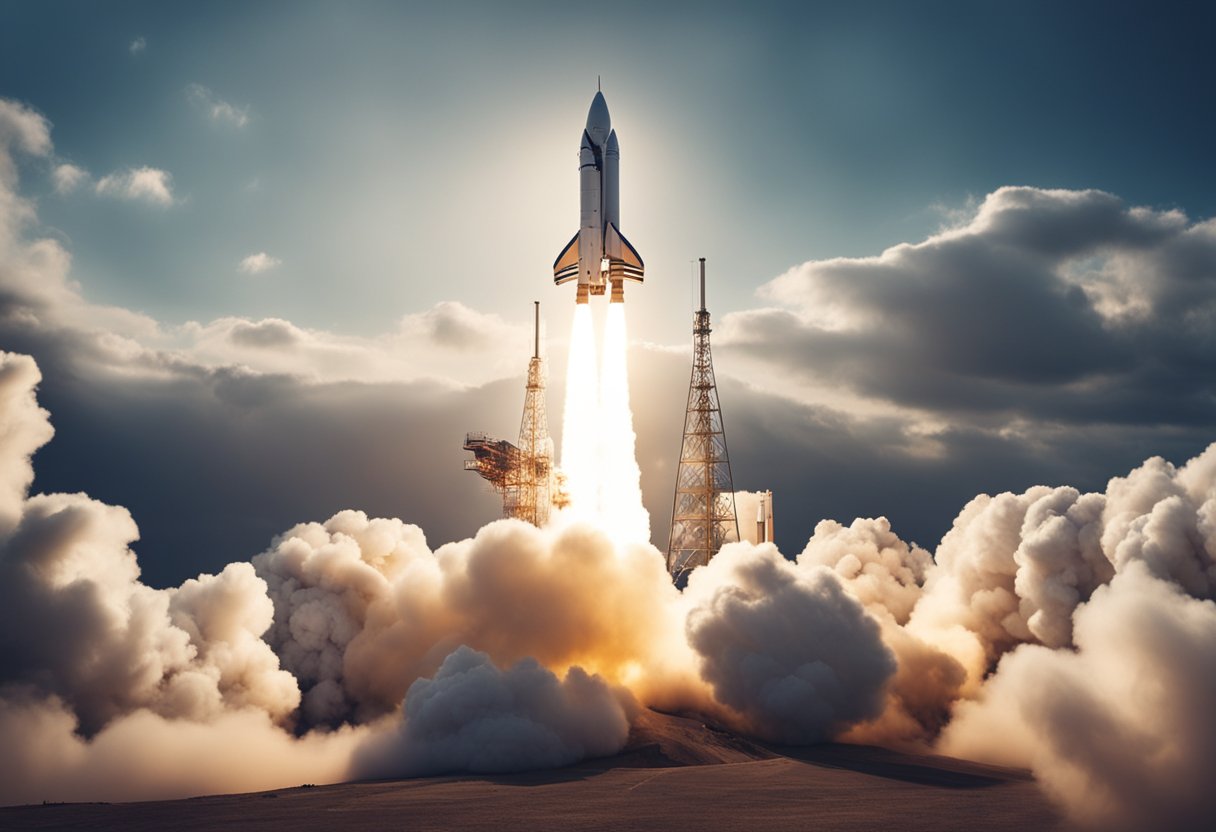
In this section, we explore the intersections of space exploration and literature, focusing on the portrayal of space travel in sci-fi, the influence of technological advancements on storytelling, the societal impacts of such narratives, key literary works inspired by space expeditions, the ethical considerations these stories often address, and the role of speculative fiction in framing public perceptions of space travel.
Space travel has frequently been a central theme in science fiction literature, often portrayed as a journey of discovery and human prowess. From the classic adventures in “The War of the Worlds” to the complex worlds found in “Dune,” science fiction has used the concept of space travel to explore unknown frontiers and the human condition.
Recent advancements, such as reusable launch systems and the possibility of space tourism, have provided fresh fodder for science fiction writers. These technological leaps have allowed authors to craft more authentic and detailed narratives that reflect the current aspirations and challenges in human space exploration.
Society has been influenced by themes of unity, cooperation, and the collective human spirit found in space exploration literature. Works such as Arthur C. Clarke’s “2001: A Space Odyssey” encourage us to contemplate our place in the universe and envision a future marked by technological and social advancements.
Notable works inspired by space exploration include “The Martian” by Andy Weir, which presents a vivid and technically detailed portrayal of surviving on Mars, and Carl Sagan’s “Contact,” which delves into the profound effects of potential extraterrestrial communication on humanity.
Science fiction narratives address the ethical implications of space travel by questioning the consequences of human actions in space, including the exploitation of other worlds, as seen in “The Expanse” series. They often challenge us to consider the moral responsibilities of advancing into the cosmos.
Speculative science fiction plays a significant role in shaping public expectations by projecting the possible futures of space travel. It reflects current hopes and fears, such as those surrounding the advent of early space tourism, which fuels both anticipation and debate over humanity’s next steps off-planet.